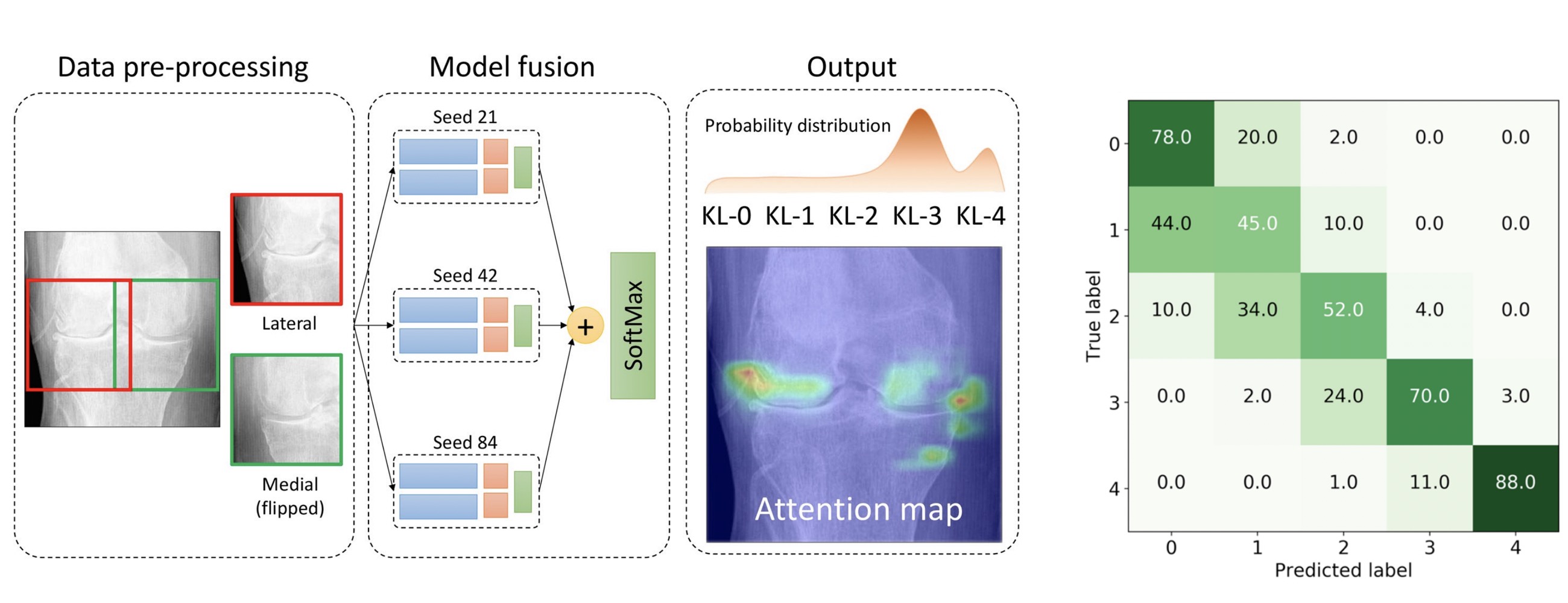
Aleksei Tiulpin, PhD
Assistant Professor (tenure track)Research Unit of Health Sciences and Technology
Faculty of Medicine
University of Oulu, Finland
Aapistie 5A
90220 Oulu
Finland
Email: firstname [dot] lastname [at] oulu [dot] fi
Google Scholar
GitHub
Kaggle
About
I am an Assistant Professor at the University of Oulu, and I am also a member of the European Lab for Learning and Intelligent Systems (ELLIS).
The focus of my research is on Intelligent Medical Systems, and I develop new machine learning methods for medical applications.
Earlier, I was a post-doctoral fellow at the Finnish Center for Artificial Intelligence and Aalto University working with Prof. Samuel Kaski and Prof. Simo Särkkä.
Before that, I was a post-doctoral fellow at KU Leuven, working with Prof. dr. Matthew Blaschko.
I earned my PhD during 2017-2020 (graduated with distinction) at the Faculty of Medicine, University of Oulu.
My PhD thesis was nominated the best doctoral thesis of the year 2020. My advisors were
Prof. Simo Saarakkala, PhD (primary),
Dr. Jérôme Thevenot, PhD,
and Prof. Esa Rahtu.
I was awarded a title of docent (i.e. habilitation) in Machine Learning for Medical Imaging on 01.02.2022.
Intelligent Medical Systems Research Group
My group develops new AI methods for medical applications. We now specifically focus on building new ways to prevent disease,
and make new tools that get embedded into care pathways.
The lab is interested in how we can advance medicine with principled methods.
The specific topics of interest of the laboratory are within the realm of methods that are
- Are multimodal
- Use as little labeled data as possible
- Predict how uncertain they are in their predictions
- Interact with humans and other AI systems

Group members. Currently, my group has the following members:
- Egor Panfilov, MSc (PhD 2025), Postdoc
- Huy Hoang Nguyen, MSc (PhD 2025), Postdoc
- Abhishek Singh Sambyal, MSc (PhD 2025), Postdoc
- Khanh Nguyen, MSc, Doctoral Researcher
- Helinä Heino, MSc, Doctoral Researcher
- Narasimharao Kowlagi, MSc, Doctoral Researcher
- Terence McSweeney, MSc, Affiliated Doctoral Researcher
- Zhisen Hu, MSc, Affiliated Doctoral Researcher
- Trung Dang, BSc, Research Assistant
- Diana Băcîrcea, BSc, Research Assistant
- Nourhan Ibrahim, BSc, Research Assistant
- Petri Partanen, BSc, MSc student
Publications
My PhD thesis (best doctoral thesis of 2020 award): Download PDF.
The full list of my papers can be found on Google Scholar. The list of selected projects:
Dang, T., Nguyen, H. H., & Tiulpin, A.. (2025) Image-level Regression for Uncertainty-aware Retinal Image Segmentation. WACV 2025.
[Link] [Code]
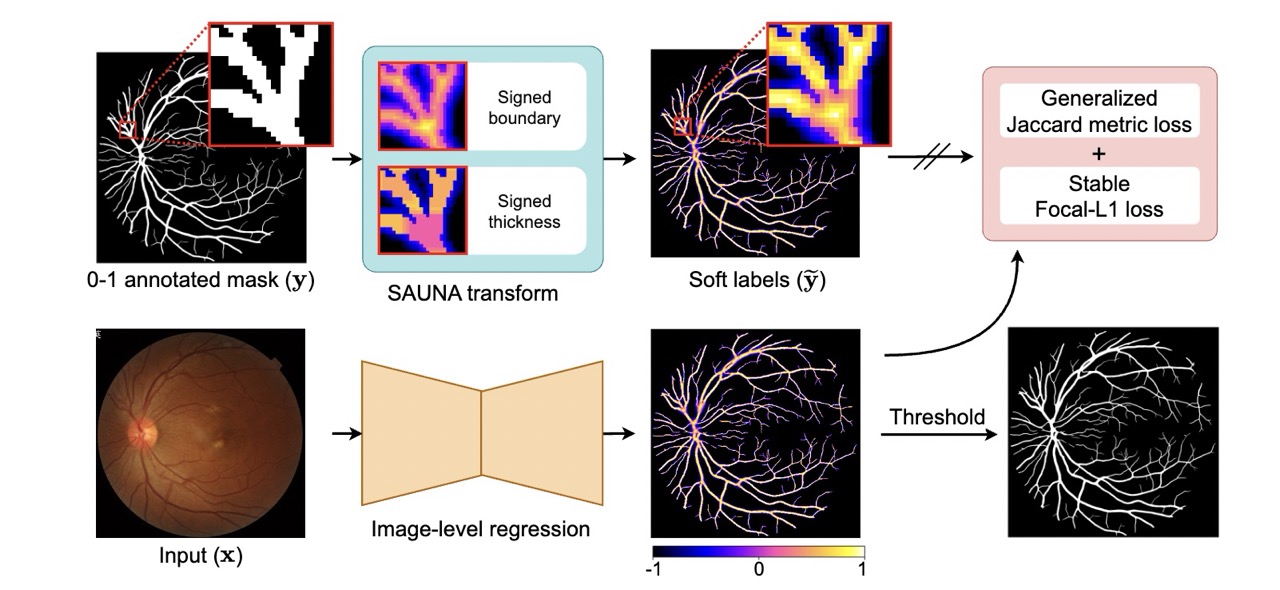
Dang, T., Nguyen, H. H., & Tiulpin, A. (2024) Singr: Brain tumor segmentation via signed normalized geodesic transform regression.
MICCAI 2024 (top-11% of all papers).
[Link] [Code]
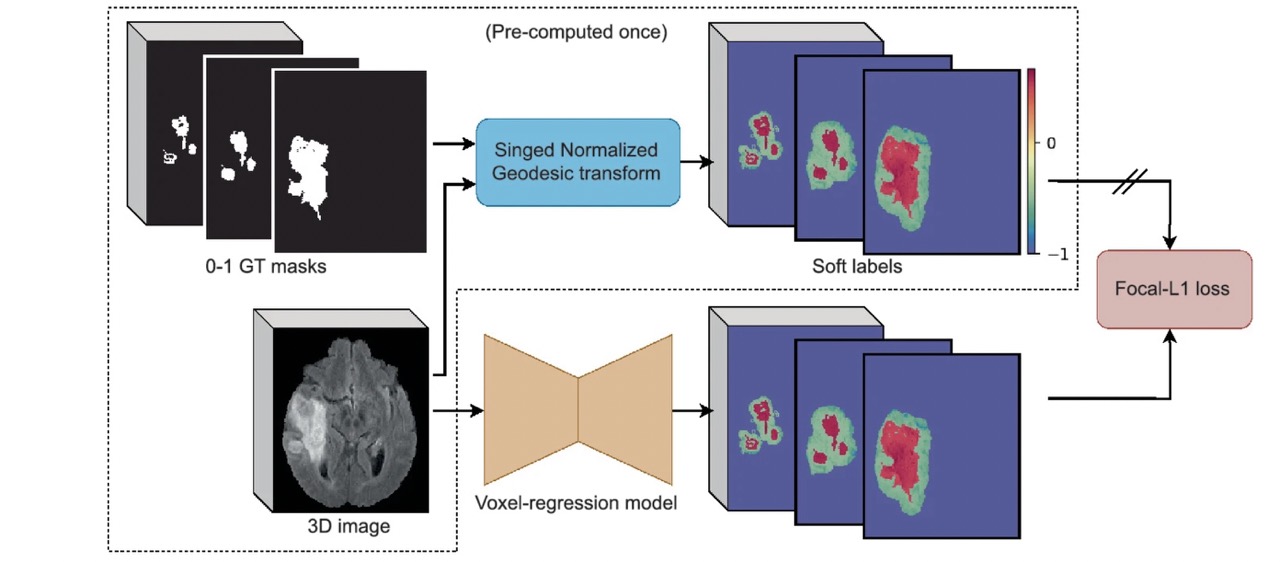
Nguyen, H. H., Blaschko, M. B., Saarakkala, S., & Tiulpin, A. (2024)
Clinically-Inspired Multi-Agent Transformers for Disease Trajectory Forecasting from Multimodal Data.
IEEE Transactions on Medical Imaging.
[Link] [Code]
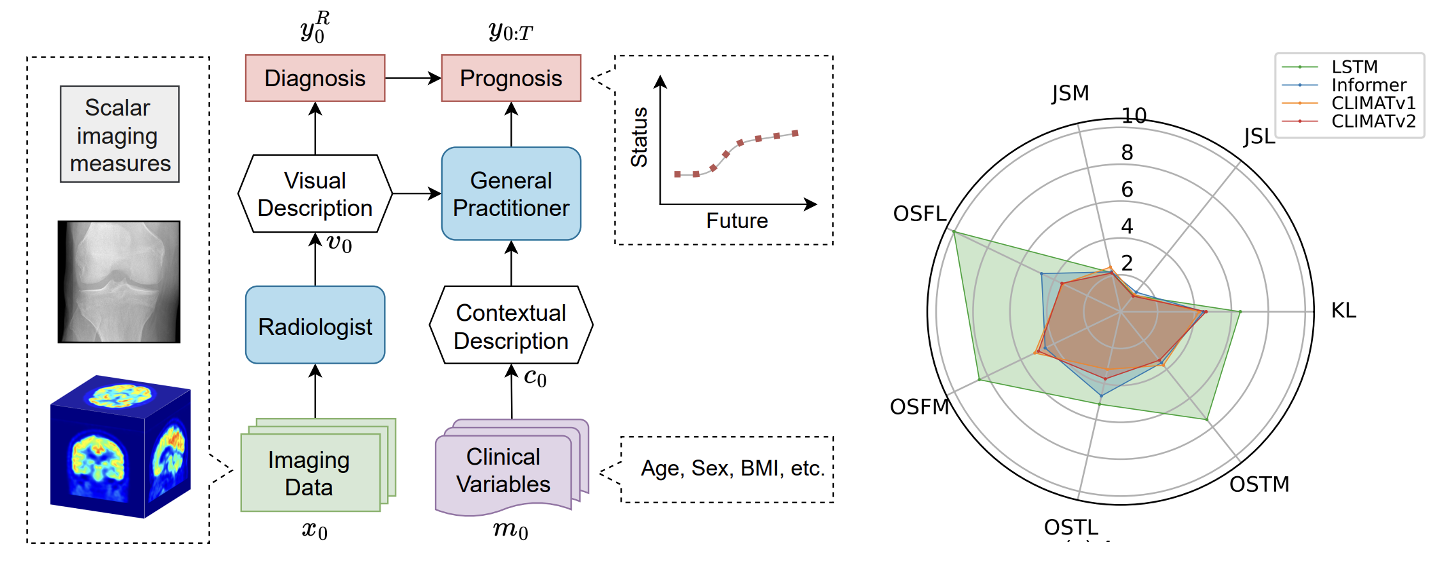
Nguyen, K, Nguyen, H. H., & Tiulpin, A. (2022).
AdaTriplet: Adaptive Gradient Triplet Loss with Automatic Margin Learning for Forensic Medical Image Matching. (MICCAI 2022; top-13% of all papers)
[Link] [Code]
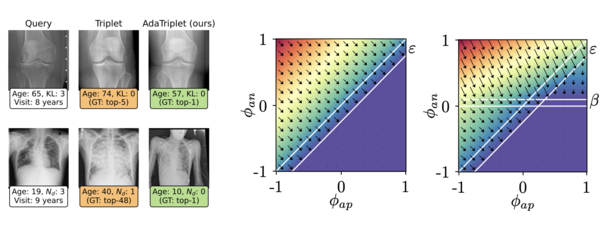
Tiulpin A. & Blaschko M.B (2022). Greedy Bayesian Posterior Approximation with Deep Ensembles.
Transactions on Machine Learning Research.
[Link] [Code]
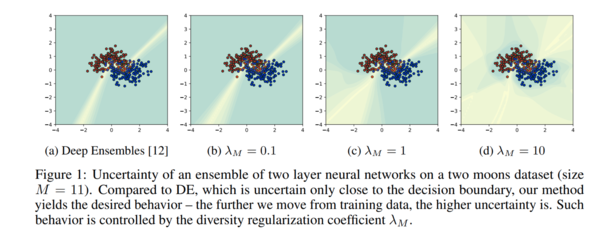
Nguyen, H. H., Saarakkala, S., Blaschko, M. B., & Tiulpin, A. (2020).
Semixup: In- and Out-of-Manifold Regularization for Deep Semi-Supervised Knee Osteoarthritis Severity Grading From Plain Radiographs.
IEEE Transactions on Medical Imaging, 39(12), 4346–4356.
[Link] [Code]
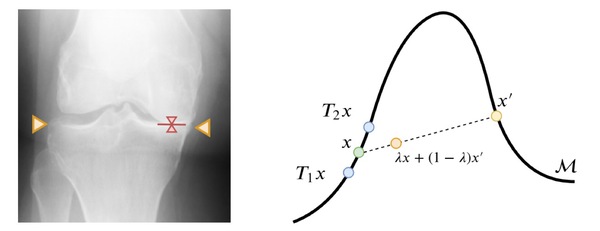
Tiulpin, A., Melekhov, I., & Saarakkala, S. (2019).
KNEEL: knee anatomical landmark localization using hourglass networks.
In Proceedings of the IEEE International Conference on Computer Vision Workshops (pp. 352-361)
[Link] [Code]
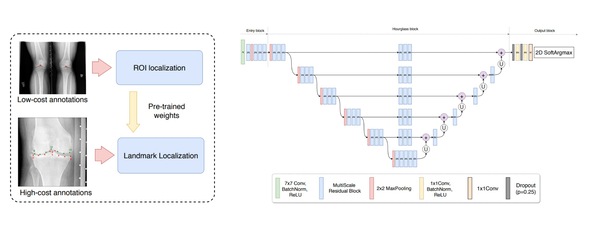
Tiulpin, A., Klein, S., Bierma-Zeinstra, S. M., Thevenot, J., Rahtu, E., van Meurs, J., Oei, E. & Saarakkala, S. (2019).
Multimodal machine learning-based knee osteoarthritis progression prediction from plain radiographs and clinical data.
Scientific Reports, 9(1), 1-11.
[Link] [Code]
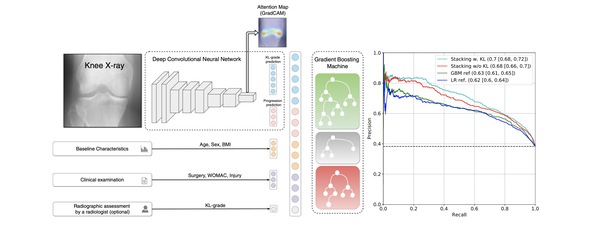
Tiulpin, A., Thevenot, J., Rahtu, E., Lehenkari, P., & Saarakkala, S. (2018).
Automatic knee osteoarthritis diagnosis from plain radiographs: a deep learning-based approach.
Scientific Reports, 8(1), 1-10.
[Link] [Code]
